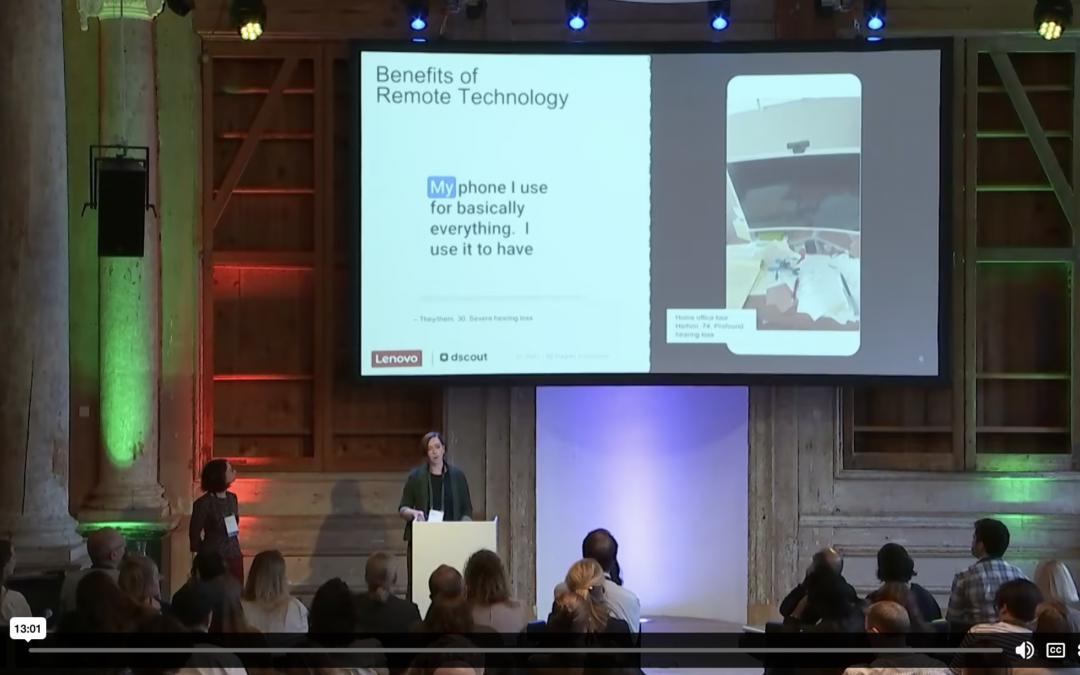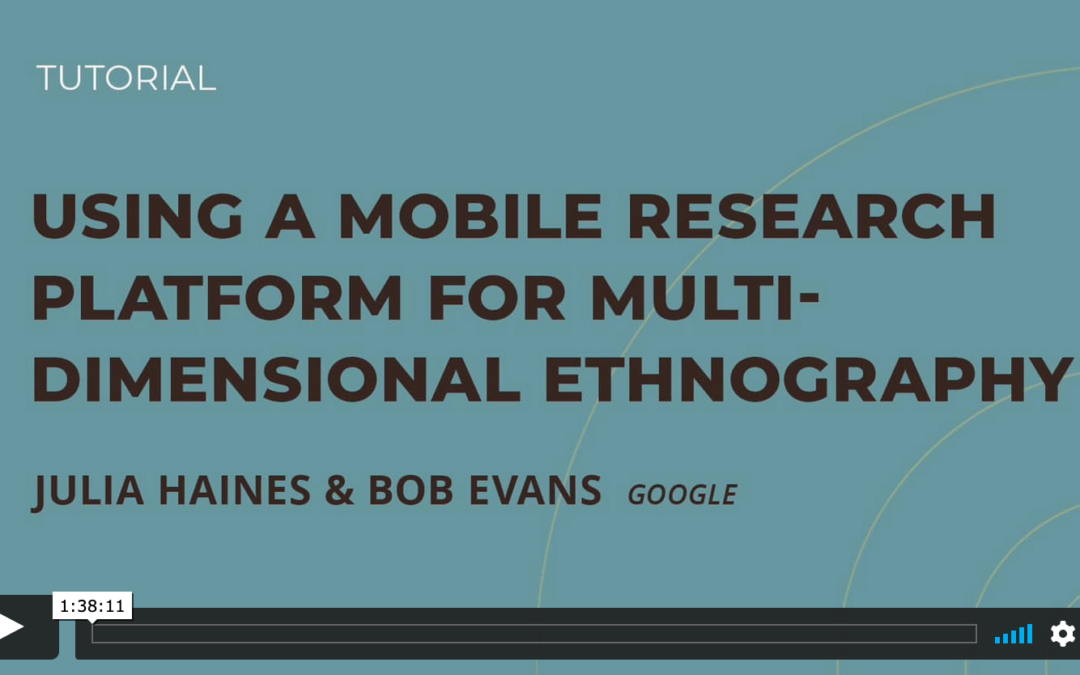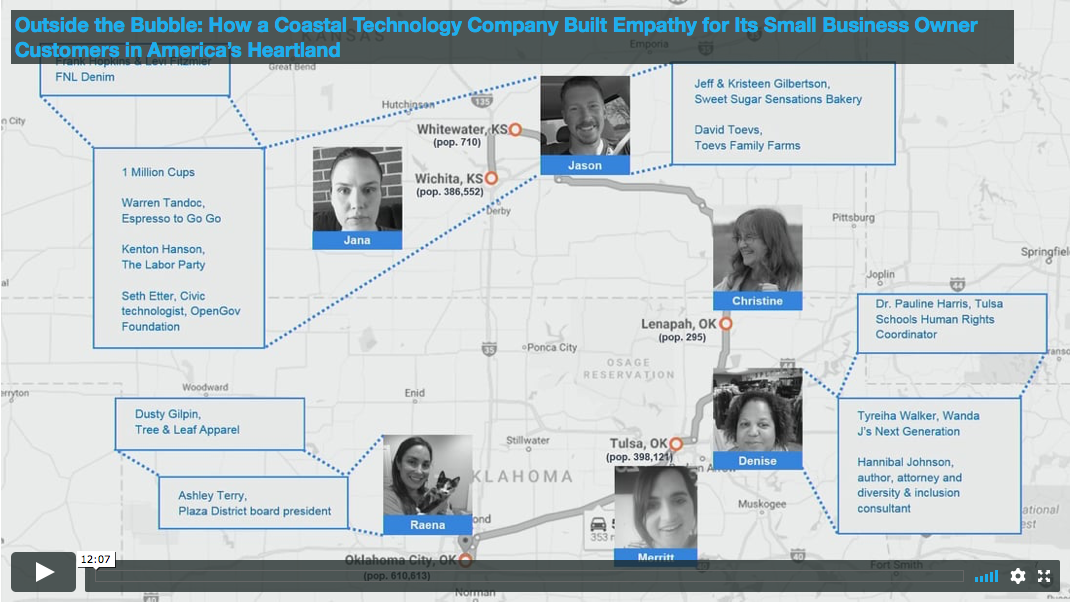This case study examines how researchers at Lenovo and dscout partnered to conduct a mobile ethnographic study on the technology experiences of individuals who are d/Deaf and hard of hearing, with the goal of...


This case study examines how researchers at Lenovo and dscout partnered to conduct a mobile ethnographic study on the technology experiences of individuals who are d/Deaf and hard of hearing, with the goal of...

Overview The TRACES methodology focuses on foundational research at multiple levels of granularity and across multiple dimensions, digital and embodied. It is an approach to gathering more meaningful data around...

This case examines an effort by San Francisco-based Square to gain a better understanding of its customers who reside outside of major metropolitan areas. The first part of the case provides detail on research: a mobile ethnography study of small business owners conducted over a two-week period at...

In a research project aimed at suggesting improvements at an annual advent fair three different ethnographic research approaches were used; Social Anthropology, Interaction Design and Mobile Ethnography. The paper focuses on how the three different approaches on ethnography affected choices in the...